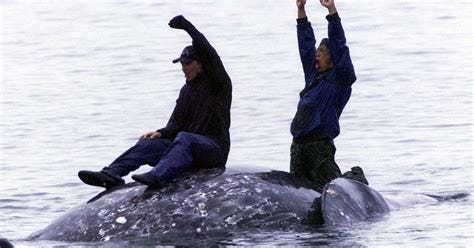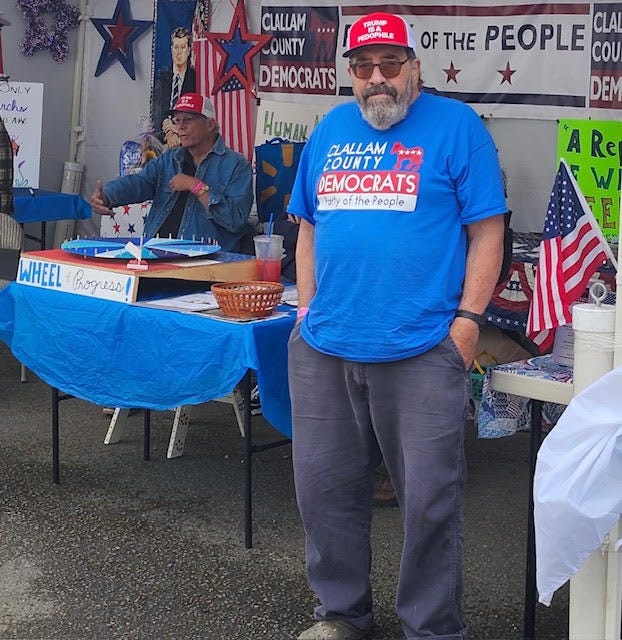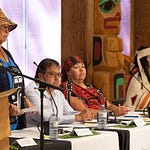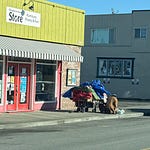Equity is supposed to mean fairness for all, but in Clallam County, fairness is being redefined. Sovereignty now comes with exemptions, privileges, and power that ordinary taxpayers can’t touch. From tax-free hotels and exclusive facilities to million-dollar decisions made without public accountability, one group of citizens has become “citizen-plus.” Is this democracy—or a modern caste system, built not on merit, but on birthright?
The caste system in India is a centuries-old hierarchy that divides people into hereditary groups based on birth and occupation. Rooted in Hindu society, it classified people into four main varnas, with Dalits—formerly “untouchables”—excluded and subjected to harsh discrimination. Though outlawed in 1950, caste identity still shapes access to resources, opportunity, and representation.
When we examine Clallam County today, the echoes are hard to ignore. We live in a society that claims to value equality, but the reality is starting to resemble a caste system of our own: a two-tier structure where some citizens are simply “more equal” than others.
Sovereignty redefined
Things are confusing these days. “Sovereign nation” used to mean independent. Now it seems to mean entitled, subsidized, and propped up by another nation.
We are told that environmental stewardship is a genetic trait—that those with even a fraction of tribal ancestry possess superior ecological wisdom compared to someone of European descent. And yet, the “best stewards” apply for whaling permits, grade wetlands to expand a golf course, expand a gas station empire, and even run commercial shellfish operations inside a wildlife refuge.
It’s hard to reconcile these contradictions. Especially when we remember that the Jamestown S’Klallam Tribe—the second largest employer in Clallam County—isn’t just a tribal government. Increasingly, it functions as our government, too.
When “public” doesn’t mean public
Sequim City Councilwoman Vicki Lowe, a Jamestown descendant, argues that her tribe does so much to “make our community better” that it should not pay taxes. “Governments don’t pay property taxes, they fund programs,” she wrote on Facebook.
In 2019, Jamestown CEO Ron Allen pressed the Port to transfer the John Wayne Marina to the City of Sequim “at no or very low cost,” suggesting the Tribe could manage it. One option even considered selling the marina outright to the Tribe. City officials reminded him that the marina could only be owned by a public entity—a city, county, or port district. Allen countered that the Tribe itself was “a different kind of public entity.”
But is that true? Tribes are sovereign nations, not public entities. They maintain their own legal status separate from city, county, and state governments. Public entities, by definition, are accountable to the public. They include schools, libraries, parks, police, utilities, and transportation systems—open and accessible to everyone.
Consider the Jamestown Family Health Clinic. It welcomes all patients, tribal and non-tribal alike. But inside is a fitness center reserved exclusively for tribal members. That isn’t public access. It’s exclusive. Access is determined not by residency or need, but by ancestry.
And Jamestown leadership openly embraces preferential hiring. Their own publications proudly state that jobs within the Tribe, its enterprises, and even its health services are given first to tribal members whenever possible. That is not a public interest—it is a tribal interest.
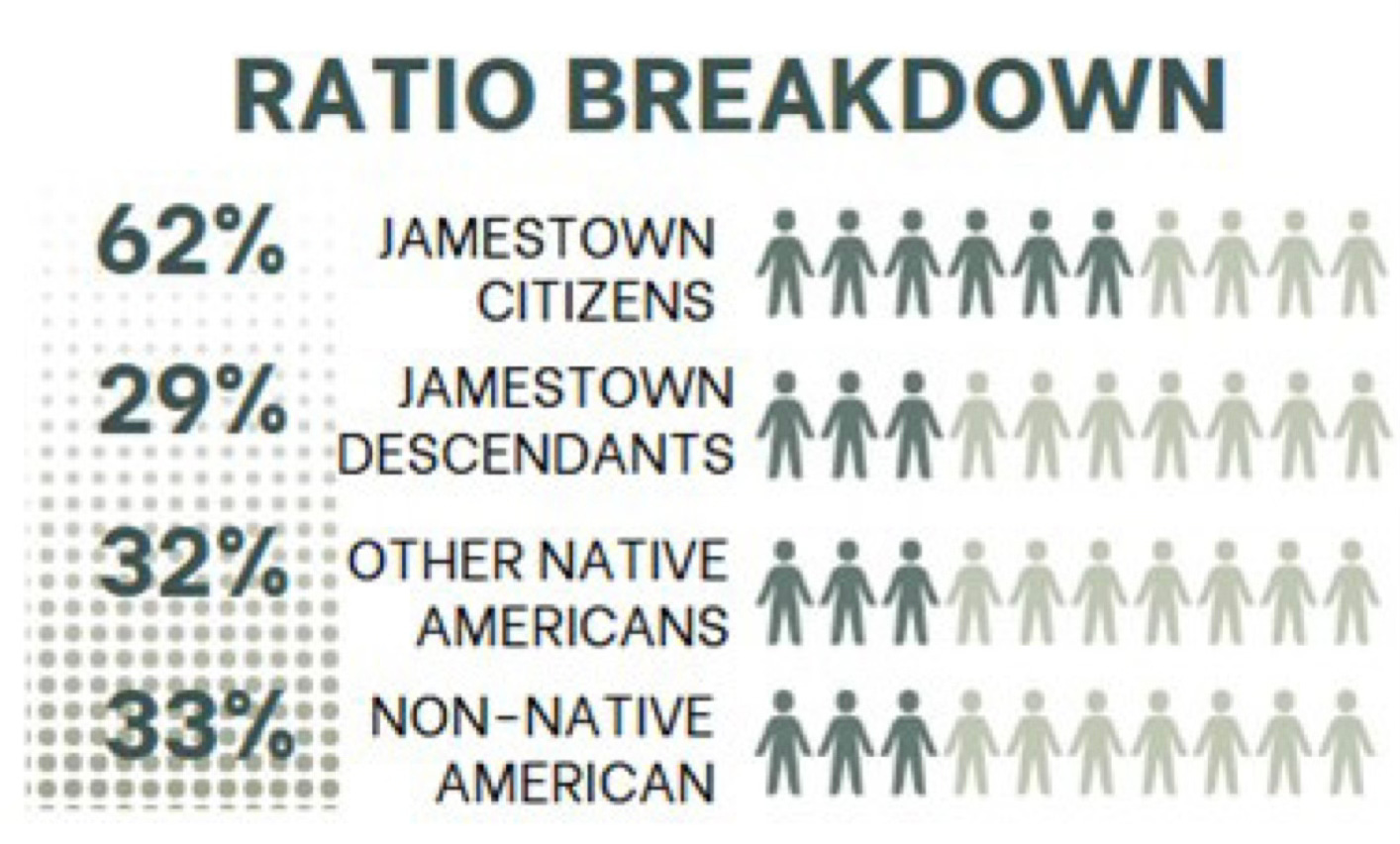
In practice, it means that hiring decisions are based not on equal opportunity but on race and lineage. That might make sense for a private or sovereign government employer, but it does not align with what we expect from a public entity, where equity and equal opportunity are supposed to be the standard.
Or take the new pavilion at Jamestown Beach. Built with cedar wraps, lighting, and a state-of-the-art sound system, it hosts events for thousands. Yet just steps away stands a sign: “Tribal Citizens Only — No Public Beach Access.”
Could Clallam County Parks put up a sign that said, “No Tribal Citizens Allowed”? Of course not. It would be illegal, discriminatory, and deeply wrong. So why is exclusion acceptable when it flows the other way? And if it’s truly about sovereignty, why aren’t similar “No Non-Tribal Access” signs posted at the casino, cannabis store, gas station, or golf course? Why are non-tribal residents welcome in some spaces but not in others?
Competing with citizens
The Tribe also operates a 100-room hotel in Blyn. It welcomes everyone—but unlike every other hotel in the county, it is exempt from collecting and remitting lodging tax. In its 2024 report to tribal citizens, Jamestown leadership proudly declared: “We have attained a 74% year-to-date occupancy which is 9% above our competition.”
Of course, it’s easy to outcompete when you’re exempt from the taxes and regulations your competitors face. But imagine if a public entity—your government—opened a business that competed directly against you and then bragged about its market share. Is that equity?
Who decides, who pays?
Then there’s the Dungeness River dike breach of 2022. The Tribe acted ahead of schedule, without coordination, and put downstream communities at risk of a mass casualty event. The county had a $200,000 solution ready to go. But when asked about it, Jamestown Natural Resources Director Hansi Hals admitted: “Chairman Allen is not in favor of this solution.”
One man’s opposition forced the county to pursue a $15 million alternative—75 times more expensive, all paid for by taxpayers.
Does that sound like democratic accountability? Do you get to vote for the chairman who rejected the cheaper fix? Didn’t we just have rallies denouncing “Kings?” Do you get a say in the decision that drained millions from public funds? No. And yet you foot the bill.
Citizens and “citizens-plus”
This is what equity demands we examine honestly: some citizens in Clallam County live under one government, while others live under two.
Tribal members benefit from dual status. They vote in county elections, hold public offices, and also elect their own sovereign government—one that exempts them from certain taxes and laws, while operating businesses and facilities shielded from public accountability.
For the rest of us, there is only one government. One set of obligations. One seat at the table.
That is not equality. That is not democracy. That is a caste system.
Toward true equity
Clallam County prides itself on inclusion and fairness. But equity cannot exist when some people are “citizens” and others are “citizen-plus.” Equity cannot exist when access, benefits, and exemptions are determined by birthright.
We must ask hard questions:
Who decides?
Who pays?
Who benefits?
And most importantly—who gets to hold power accountable?
Until those questions are answered honestly, we remain trapped in a modern caste system—one where ancestry, not equality, determines privilege.
And if we truly believe in democracy, that should trouble every single one of us.
Last Equitable Wednesday, readers were asked if “family-friendly” rules should apply to all vendors, even for politics. Out of 337 votes:
96% said, “Yes, equally”
4% said, “No, free speech first”
Reminder
If you have thoughts about how the fair is run, the Fair Advisory Board meets tonight, August 27, 2025 at 6 p.m.in the County Courthouse (Room 160). This is a public meeting and you can attend in person or virtually (instructions here.)
Call 360-565-2659 or email Melissa.Earley@clallamcountywa.gov to give public comment.




